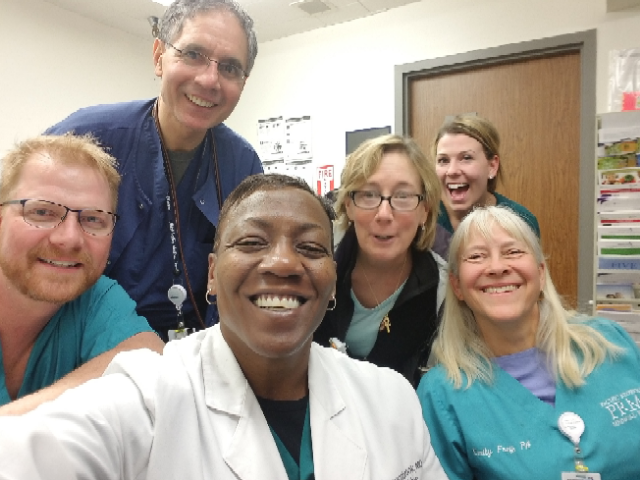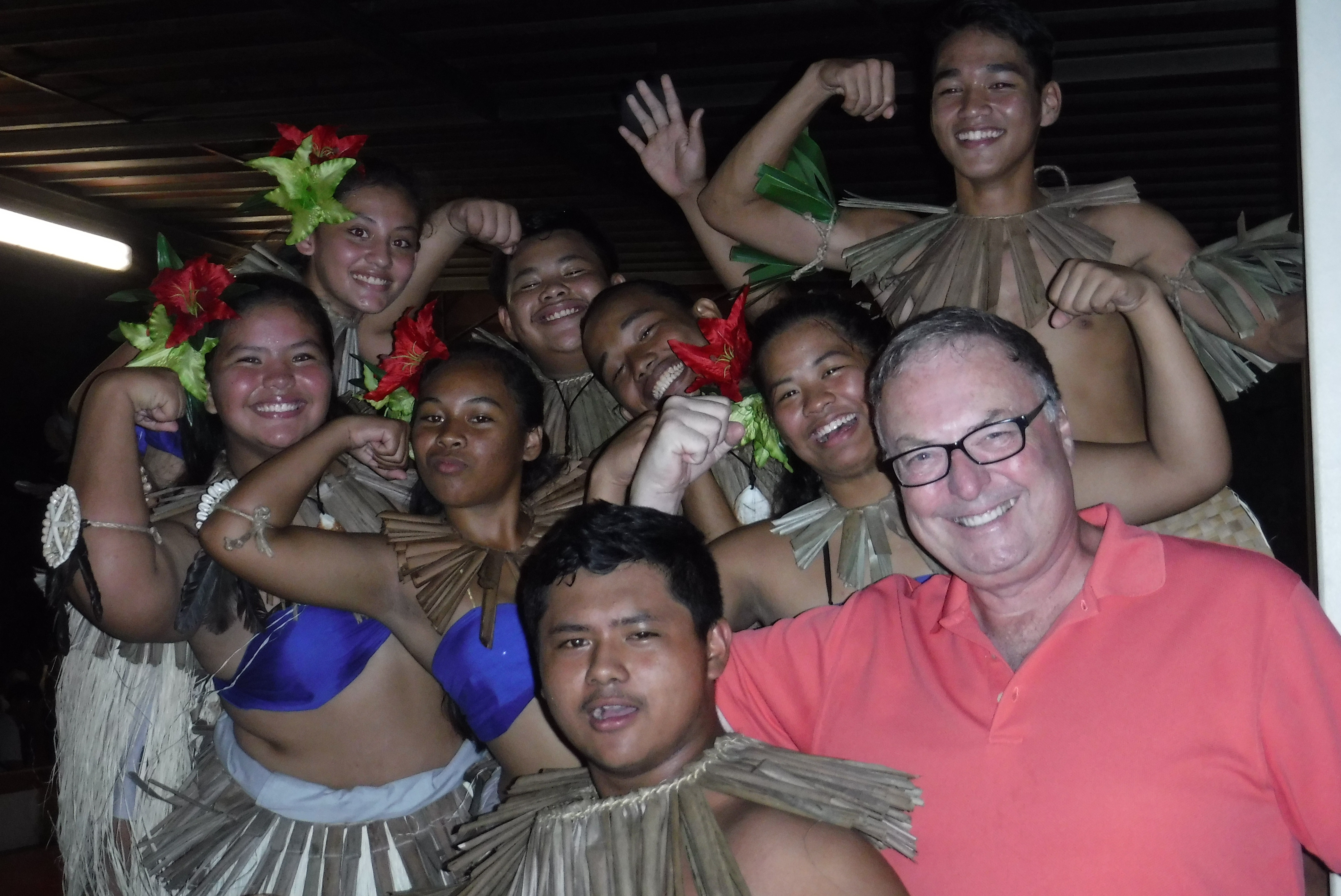Dr. Anita Haugabrook (Doc Nita) first got into locum tenens during a transitional point in her career. She had just left a fulltime partner role in a physician group and wanted some time to consider options before signing a long-term contract. However, she soon fell in love with the locum tenens way of life and decided to make it permanent.
“Transitioning to the world of locums was a leap of faith. Thanks to Global Medical Staffing and my consultant, Sydnee Shelton, for making my dreams a reality!” Doc Nita says.
What Doc Nita loves is the way locum tenens allows her to passionately practice medicine, regain work/life balance, and travel to new places.
“I choose my shifts and locations, which provides me autonomy and allows me to spend more time with my family. Now, I’m back in control of my life and my destiny,” she says.
Flexibility and work/life balance
Doc Nita loves the flexibility of locum tenens and her ability to set her own schedule. “I only accept the times and places I want to work,” she says. “I literally work when I want to and don’t work when I don’t want to.”
For her, that means no nights or weekends.
With the ability to be in charge of your own schedule comes true work/life balance. That, in turn, means Doc Nita has fallen back in love with medicine after feeling burned out for years.
Helping patients
With locum tenens, instead of spending so much time handling staffing crisis and admin tasks, she can spend much of her working time doing what she loves: helping patients.
“I get to practice medicine,” she says with a smile. “When I was burned out, I wasn’t able to see the joy in my work anymore, and I went into medicine to make a difference, to get people well, and to see the joy in people when they’re feeling better. I feel like I’m helping people again.”
She loves practicing in different healthcare settings — and she loves that she can choose not to go back to a certain hospital or healthcare facility if she didn’t like the way it was managed.
Also, she says that now instead of bearing the brunt of the problems, she’s on the receiving end of gratitude.
“Almost every time I leave a shift someone tells me ‘thank you’ because they were going to be overworked without me there. I really feel the appreciation as a locum tenens physician filling in their gaps.”
One of my favorite things about locums (travel medicine) is meeting and working with new people all the time! Meet my APC team at UVMC and a couple of photobombers.
Giving back
The flexibility of locum tenens has made it easier for Doc Nita to do medical mission work. So far, since she started locum tenens in August 2017, she has helped out in Panama and Costa Rica.
“The missions were eye opening and rewarding,” she shares. “I don’t complain anymore about anything in my life because of it. The people we helped would walk six miles each way to see us. They would leave the day before just so they could see us!”
Sydnee, Doc Nita’s recruiter at GMS, shares in on the joy of witnessing someone so willingly helping others.
“Doc Nita’s passion to help those who otherwise wouldn’t receive medical assistance is unparalleled,” says Sydnee. “When she shares the stories of her time abroad, she oozes with love and passion for the people she served. She speaks of how much these beautiful people have changed her view on life.”
Doc Nita adds, “I look forward to my next mission!”
Living somewhere else like a local
So far, Doc Nita has taken travel assignments in St. Louis, Missouri, and Northern California.
The way locums works is that Global Medical Staffing arranges the travel to the location. The contract also includes medical malpractice insurance and usually housing and transportation as well, with GMS taking care of the logistics, including helping with credentialing, licensing, and privileging before the assignment starts.
When on assignment, Doc Nita makes sure to take time from work to take in the local sights.
“Missouri was a good experience,” she recalls. “I worked with a physician group that was in between management teams, and it was really neat to come to help a solid group of people who had been there for a while but also were in flux. It was a well-run group. And St. Louis was a pretty neat town. It was nice visiting there and learning more about it, seeing the Arches, going to Sweetie Pie’s Restaurant for soul food, and checking out other local places.”
Doc Nita’s next traveling assignment was in Ukiah, California. “The drive to work every day is amazing because it is so beautiful!” she says. “The local culture and tribal people are amazing. The transplants are too — it’s kind of a little melting pot. I tried some local food and wine and then went to the farmers market with all of its local teas. My goal every time I go somewhere is to absorb some of the culture.”
The City of Ten Thousand Buddhas — the largest Buddhist monastery in western society. Travel opportunities are of a hallmark of locum tenens. Where would you like to visit on your next assignment? Let GMS help you get there!
Choose your assignments
Finding the right assignments involves teamwork. As Sydnee puts it, “I partner with Dr. Haugabrook rather than ‘work’ with her. She has made me an equal and has so much trust in me. Her trust in me is at times intimidating and humbling! She has said to me on more than one occasion regarding her transition from her permanent job to locums, ‘Syd, you are a Godsend!’ However, I feel it is the other way around!”
This type of mutually respectful and heartfelt relationship is common between our GMS recruiters and physicians. We want to find you the right assignment that works out for your goals, needs, aspirations, and wanderlust.
Still unsure? Give it a try, says Doc Nita. “You can always try it and then go back to full time if you want. For me, I love locums and am not going back.”
Doc Nita recently took over our Instagram to share her locum tenens adventure in Ukiah, California. Head over to our page to check out her photos right here.
Want to start your own locum tenens adventure? Click the button below to browse our current opportunities. Or just pick up the phone and give us a call.



 Back
Back









